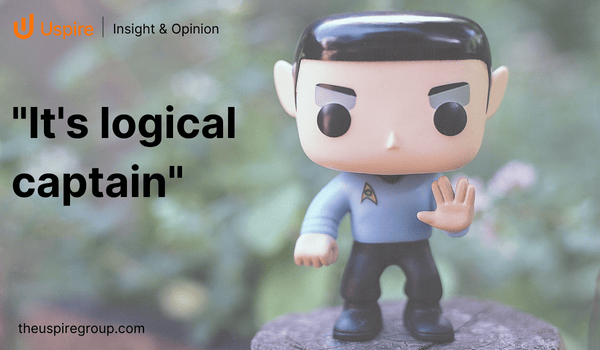Everyone knows Spock, right?
The entirely logical processor of facts and what-if scenarios. The mixed Vulcan-human first officer of the Starship Enterprise who lacks any form of human emotion and calculates his actions from applying stifling logical thought. I admit to not being a Star Trekker so if I have upset anyone by not realising that Spock did indeed display human emotion at the 17th minute of episode 3, season 5, then hands up, sorry.
Anyway you get the picture.
The application of logical thought is, of course, a valued skill. However, only applying logical processes at the cost of all other emotional inputs could lead to a very lonely existence. And applying only logical processes to manage your team can quickly lead to a stale and stifling environment.
As we all know, the workforce and customers are getting increasingly remote. Gone are the days of employees trudging Lowry-like into a hulking grey building for their 8-hour shift. Customers no longer need to come to you to buy, in fact they may not even ever buy from you, choosing instead to buy through amazon, ebay or a host of other intermediaries and re-sellers.
And because of this shift, leaders need to balance their logical, task-focused capability and skills with an ability to deeply and genuinely connect with people. At Uspire we call this the shift from “it’s logical captain” to consciousness3, and it is the 3rd of our leadership paradigm shifts.
The consciousness we advocate in leadership is
- Connect – exploring your emotional quotient and harnessing it to compliment your intelligence quotient. Focusing on abilities such as
- Identifying emotions
- Evaluating how others feel
- Controlling one’s own emotions
- Relating to others
- Co-create – don’t tell. This is fundamental to the way in which Uspire bring about business change. We co-create solutions with internal champions, rather than dictate. And this is vital for leaders to gain the connection with their team. Teams respond better to strategy and tactical planning if they were integral to its development.
- Contribute – to your business community. Become engaged with the wider reach and impact of your business.
So, apart from the die-hard Vulcanites out there, that shift from Spock to Captain Kirk can bring real positive change: building a purpose and value-led organisation that encourages innovation, values ideas and a big change agenda.
Now that’s logical Captain.

